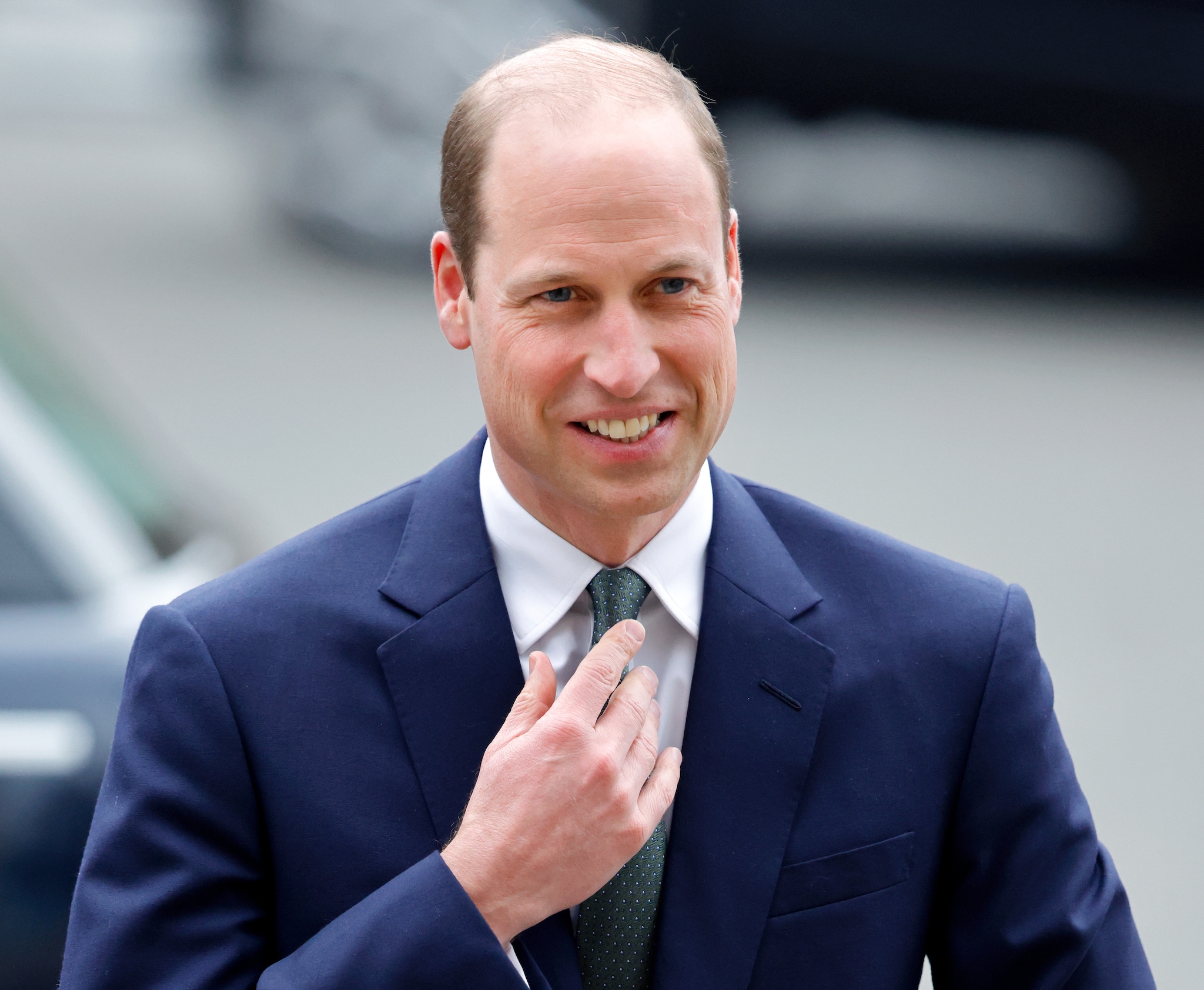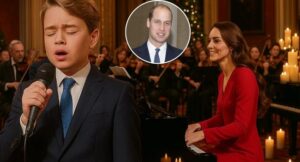
“You Raise Me Up, So I Can Stand on Mountains”: Prince George Honors His Father King William with a Birthday Tribute the World Will Never Forget
“You raise me up, so I can stand on mountains. You raise me up, to walk on stormy seas…”
With those first tender words, sung in a voice still young yet brimming with heart, 11-year-old Prince George stunned the world on the evening of June 21, 2025, as he delivered a deeply emotional and historic tribute to his father, King William, on his 43rd birthday. The setting: Buckingham Palace’s grand ballroom, awash in candlelight, adorned with sapphire and gold, a quiet echo of royalty and reverence. The occasion had been promoted as a celebration of the King’s legacy so far—but no one could have predicted the moment that would steal the night, and the hearts of millions.


As guests arrived—royalty, dignitaries, and beloved friends of the Crown—whispers of grandeur filled the air. But nothing could prepare them for what happened when a young figure in a tailored navy suit stepped forward alone, illuminated by a single spotlight.
It was George.
The heir to the throne, typically shy and reserved in public appearances, stood center stage with surprising confidence. His eyes scanned the crowd briefly, until they met his father’s—King William, seated with Queen Catherine, surrounded by loved ones. The future king gave a small, quiet nod. And then… the music began.
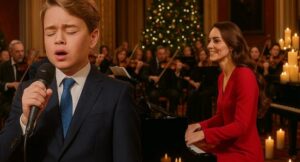
Backed by a live orchestra and an acoustic pianist, George began to sing “You Raise Me Up.” His voice, clear and sincere, didn’t need power or polish—it carried the kind of emotion that could only come from a son singing to his hero.
“Papa,” he said softly before the second verse, “thank you for being my mountain, my calm, and my compass. Tonight, this is my gift to you.”
The room fell into stunned silence.

Each lyric, each note, felt like a love letter. The words spoke not just of admiration, but of a lifetime of small, private moments: the walks through royal gardens, the stories before bed, the quiet reassurances in a life often lived under public scrutiny. George wasn’t just performing—he was opening a window into the bond between father and son.
Tears welled in the eyes of the audience. Queen Catherine gently held her hand over her heart. King William, visibly moved, sat still, eyes locked on his son, a father overwhelmed not by pomp, but by a moment of pure, intimate truth.
By the time George reached the final chorus, many in the room were openly weeping. Even seasoned royals, journalists, and palace staff—those long accustomed to grandeur—were left breathless by the raw honesty of the performance.
And then came the final line: “You raise me up… to more than I can be.”
As the last note faded into silence, a pause stretched through the room, heavy with emotion. Then, thunderous applause erupted. But it was King William’s quiet gesture that spoke volumes. He stood slowly, tears in his eyes, and placed his hand on his chest before walking to the stage, where he embraced George tightly—father to son, king to future king.
“My boy,” he was heard whispering. “You made me prouder than I’ve ever been.”
Within minutes, clips of the performance went viral. Social media exploded with reactions. The hashtag #PrinceGeorgeTribute trended globally. Fans and celebrities alike flooded the internet with praise, calling it “the most heartfelt royal moment in decades.” One commenter wrote, “We saw not just a prince, but a boy becoming a man in the most beautiful way possible.”
Royal historian Margaret Langford noted, “This was more than a birthday performance. It was a glimpse into the heart of the future monarchy—a generation raised not only in tradition but in compassion, expression, and gratitude.”
The song “You Raise Me Up,” originally made famous by Josh Groban and a symbol of inspiration for millions, took on an even deeper meaning in this context. Performed by a son to his father—who also happens to be the King of England—it became an anthem of legacy and love.
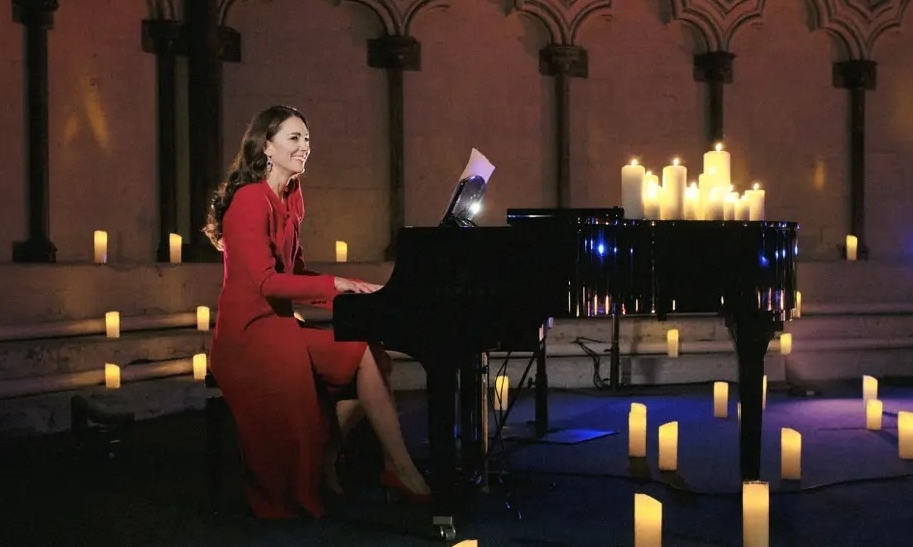
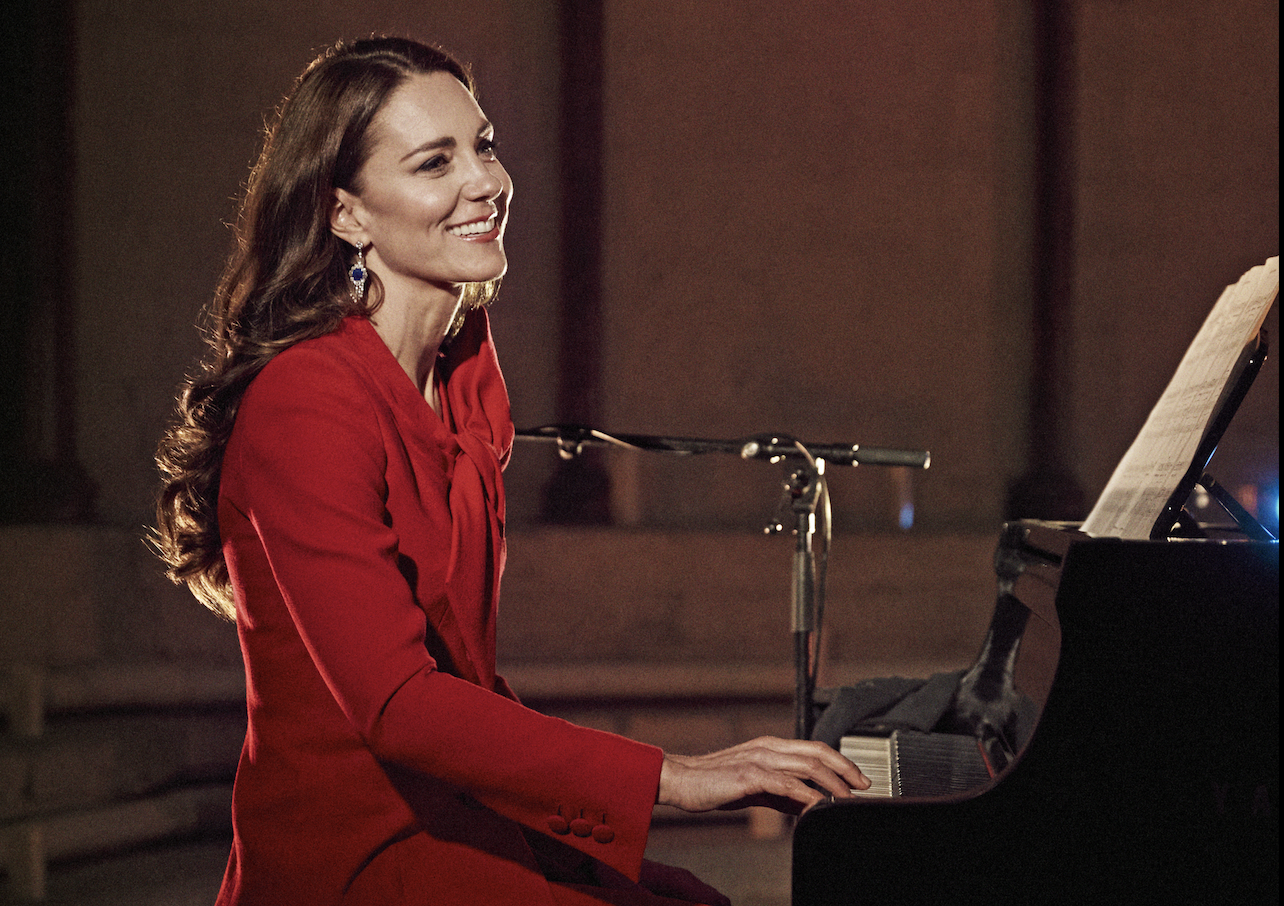
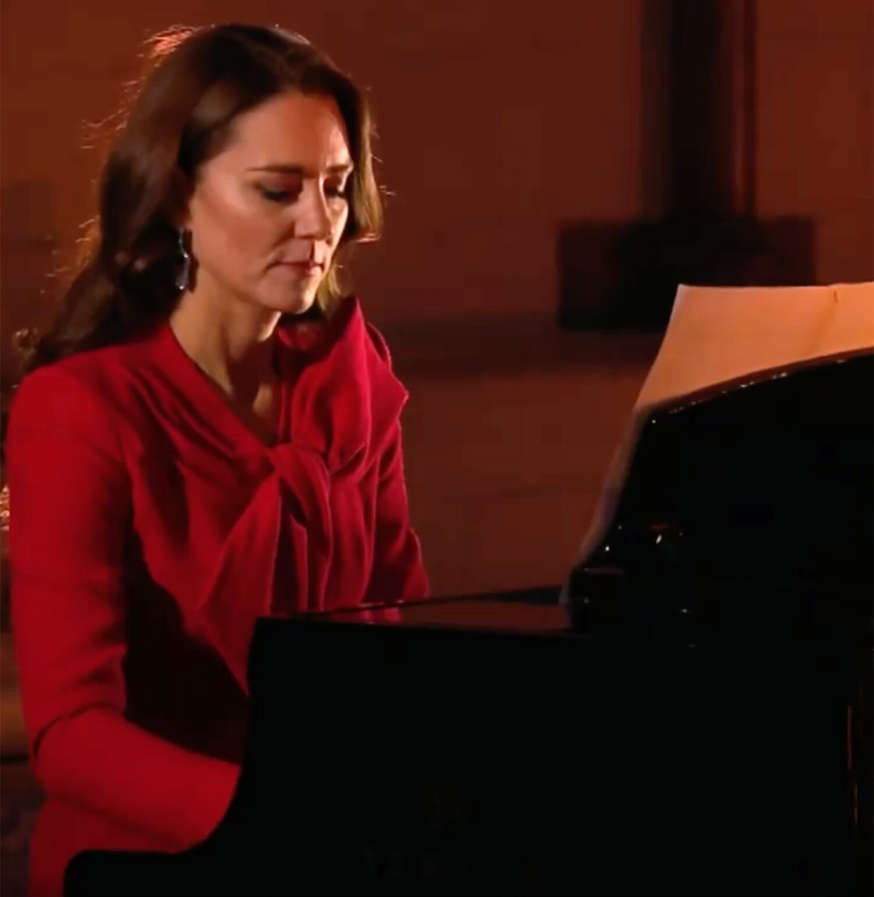
Sources inside the palace revealed that the idea came from George himself. Inspired by his father’s quiet strength, especially during his grandmother Queen Elizabeth’s passing and the transitions that followed, George had asked to honor him with a surprise performance. The piece was kept secret even from many palace staffers, rehearsed in private over several months with vocal coach guidance and orchestral support.
“It was important to him,” one aide shared. “He didn’t want to just say happy birthday. He wanted to show his father what he meant to him—not as a prince, but as a son.”
The ripple effect of that choice continues to grow. In classrooms across the U.K., young students watched clips of George and shared their own stories of their fathers. Music teachers praised the vulnerability and authenticity of the moment, calling it “a perfect example of how song connects us beyond titles and expectations.”
For the royal family, the performance marked more than a tender birthday gift. It revealed a new layer of the next generation’s potential—not just in duty, but in heart. George may one day wear the crown, but on this night, he wore something far more powerful: the courage to express love in front of the world.
As one onlooker whispered as the ballroom lights dimmed:
“He sang like a boy in love with his father—but he stood like a king already learning how to lead with grace.”
And perhaps that’s what the monarchy truly needs in this new era—not just tradition and ceremony, but moments of honesty, emotion, and connection that remind the world: behind every crown is a human heart.
